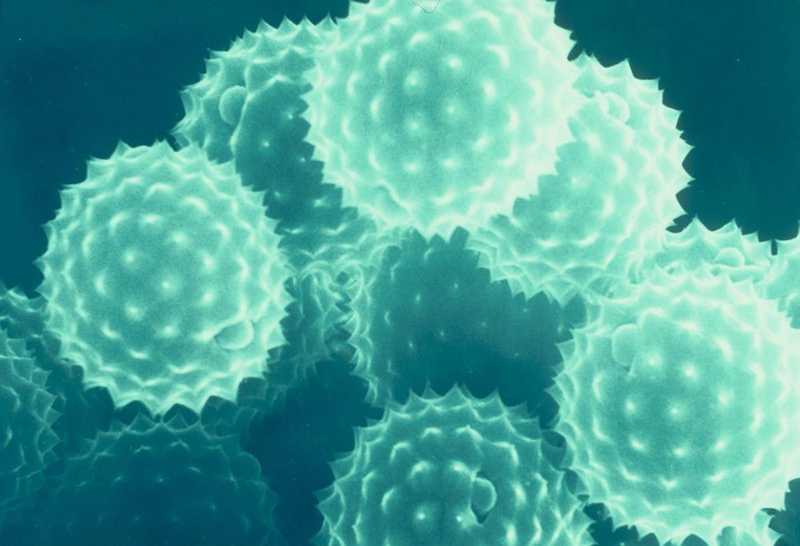For those familiar with cannabinoids, their fascinating interactions with the human body are probably old news. Their effects on the immune system, however, may not be as well-known. According to new research, cannabinoids may have an important balancing role that allows the immune system to function at maximum efficiency.
What Are Cannabinoids?
FOLLOW US ON FACEBOOK & INSTAGRAM
To put it simply, cannabinoids are the chemical compounds that are components of the cannabis plant. They have long been used in medical circles to treat symptoms ranging from pain to inflammation. Today, they're also gaining popularity for their positive effects on the human immune system.
There are many varieties of cannabinoids, including phytocannabinoids, which are found in cannabis and several other plants, and synthetic cannabinoids, which are manufactured in a lab.
FOLLOW US ON FACEBOOK & INSTAGRAM
What Is the ECS?
The endogenous cannabinoid system, also known as ECS, is a complex network of lipids and receptors. Endocannabinoids and their respective receptors are produced naturally by the body and are located in the brain, connective tissues, glands, and, notably, the cells of the immune system. These receptors are designed to interact actively with cannabinoids in a variety of ways.
Recently, scientists have discovered that cannabinoids derived from the cannabis plant can actually help the ECS to function at optimal levels, thus promoting optimal health. This is especially important due to the fact that ECS receptors have a direct effect on bodily functions such as hunger, pain sensation, mood, memory, appetite, blood sugar levels, and the immune system.
The ECS and Its Ties to the Immune System
Study of the ECS has revealed that cannabinoids can act as neuromodulators for a wide assortment of human processes, including learning, appetite, and immune response. Within the immune system, endocannabinoids function to protect and lubricate systems for optimal function. Additionally, they play an important role in reliving symptoms of disease progression and pain.
Although the effects of the ECS on the human immune system warrant far more study, scientists currently know that targeted cannabinoids are a promising treatment for certain autoimmune diseases, such as multiple sclerosis, Parkinson's, lupus and arthritis. As a treatment, cannabinoids can often serve to reduce inflammatory response and provide increased comfort for affected patients.
How Cannabinoids Affect Neural Function
Cannabinoids have been scientifically proven to play an active role in maintaining and regulating the processes of neurogenesis and neurodegeneration. In animal trials, cannabinoids have alleviated symptoms of stroke and traumatic head injuries. This provides an important link between cannabinoids and the immune system. The immune system is capable of helping the body recover from stroke because of its power to reduce inflammation in the central nervous system. With that in mind, it stands to reason that using cannabinoids to help decrease inflammation while also promoting the construction of new neural pathways (neurogenesis) could go a long way toward supporting the immune system's natural function and creating quicker stroke recovery periods.
Cannabis can Help to Balance Different Functions of the Immune System
Predominantly, the body uses two immunity mechanisms to prevent disease and illness. These types are as follows:
- Cell-Mediated Immunity: Cell-mediated immunity does not utilize antibodies to fight disease. Instead, it relies upon the creation and activation of antigen-specific T-lymphocytes known as phagocytes. These phagocytes target various antigens by releasing cytokines to neutralize the threat and restore the body to normal function.
- Humoral Immunity: Humoral immunity (also known as antibody-mediated immunity) relies on the macromolecules located in extracellular fluids to fight off antigens, unlike cell-mediated immunity which involves T-lymphocytes.
Because the immune system is so complex, it's not altogether surprising that it sometimes falls out of balance. Multiple sclerosis, for example, is an autoimmune disease that results from the cell-mediated immune system becoming overly active and targeting the body's brain and nervous system as if it were a dangerous antigen. Within M.S., the immune system attacks the myelin (the fatty, protective coating) around nerve fibers, resulting in extensive scar tissue and damage. Over time, the buildup of scar tissue begins to interrupt nerve impulses as they travel to and from the brain. This, in turn, causes a loss of motor function and eventual paralysis in the affected individual.
Until now, conditions like this had no known treatment or cure. But excitingly, scientists have recently discovered that the ECS and various cannabinoids may actually help to balance the various branches of the immune system. This is important because when the immune system is overstimulated, autoimmune diseases and dangerous allergic reactions such as food sensitivities, often occur. This is due to the fact that an overstimulated immune system treats even routine things, such as dust or pollen, as dangerous intruders and releases "false alarms" that tell the body to attack the allergen. When the immune system is under-stimulated, however, cancer and disastrous infections can easily arise. If cannabinoids can help balance the immune system for optimal functionality, it stands to reason that the rates of these adverse affects would be drastically decreased.
Using Cannabinoids to Produce Maximum Immune Function
While routine, recreational use of marijuana may have adverse affects on an individual's overall health and well-being, research from the targeted use of cannabinoids for the purpose of boosting the immune system is overwhelmingly positive. In addition to mitigating the inflammatory symptoms of arthritis and various neural problems, cannabinoids have been shown to interact with the ECS in a way that helps promote maximum immune function and optimal health through various stages of life.
Although the topic of cannabinoids and the immune system requires further study and evaluation, scientists have already compiled a large body of research, which is starting to reveal how cannabinoid compounds can help the immune system function at optimal levels.
